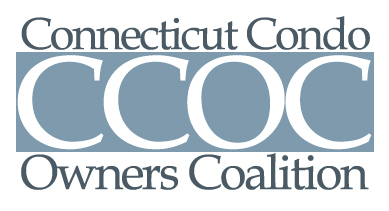Ask Atty. George: What Does It Mean To Vote By Proxy
In my practice I am often asked about proxy voting.
A proxy is a document executed by a unit owner that grants to another person the owner’s right to vote in the Association. Unit owners often want to vote by proxy because it is difficulty or impossible to attend the Association meeting or because they would rather not be at a meeting that promises to be contentious. This helps to ensure that the Association meeting reaches a quorum and is able to transact business, and allows the absent party to have a vote even if he or she can’t attend the meeting.
Proxies may be “general” or “directed.” A directed proxy directs the person holding the proxy as to how he or she should vote for the proxy giver. A general proxy simply grants the right to vote to the proxy holder, and does not specify how that vote must be cast.
The Common Interest Ownership Act (CIOA) allows unit owners to vote by a directed or an undirected proxy at a meeting or when a vote is conducted without a meeting, by electronic or paper ballot unless prohibited or limited by the declaration or bylaws (CGS 47-252(a)). Thus unit owners who want to vote by proxy need to carefully check the Declaration and Bylaws first.
Except as otherwise provided in the declaration or bylaws, the following requirements apply to proxy voting,
(1) a unit owner may revoke a proxy given pursuant to this section only by actual notice of revocation to the person presiding over a meeting of the association
(2) a proxy is void if it is not dated or specifies that it is revocable without notice;
(3) a proxy terminates one year after its date, unless it specifies a shorter term
(4) a person may not cast votes representing more than fifteen per cent of the votes in the association pursuant to undirected proxies; and
(5) if more than one person owns a unit, each owner of the unit may vote or register protest to the casting of votes by the other owners of the unit through a duly executed proxy (CGS 47-252 (c)).
Once again, any of these five rules must be followed unless the Declaration or Bylaws provide otherwise. For example, some Declarations limit voting to one vote per unit. Therefore, in the case of multiple owners of one unit, each owner could not cast a vote via a proxy as otherwise allowed under number 5 above.
Unit owners are often puzzled by the language in number 2 above that a proxy is invalid if the proxy states that it can be revoked by the unit owner “without notice.” Thus, if that wording or similar wording appears on the proxy, the proxy is invalid and the vote can’t legally be counted. The reason for this prohibition appears to be that the person presiding over the meeting would have no idea whether the unit owner had revoked the proxy prior to the time the vote was taken.
Unit owners who have signed a proxy and who change their mind and want to revoke it need to consult the Declaration and Bylaws to see if a procedure is in place for revoking a proxy and then follow that procedure. If these documents do not contain a procedure, the unit owner should notify the Association President in writing before the vote is scheduled that he or she is revoking the proxy.
Also some associations draft proxies for unit owners to sign that specify that the proxy is for an Annual Meeting or for a Special Meeting to be held on a specific date. In such cases the proxies are only valid for the meeting that is specified in the proxy. Thus, unit owners who want to create a proxy for more than one meeting or for a certain period of time must make sure the proxy states that clearly. And, as noted above, a proxy automatically expires within one year even if the language of the proxy provides for a longer time period.
Remember to carefully review the Declaration and Bylaws as well as CIOA before preparing or executing a proxy. And as they used to say, tongue in cheek I hope, deep in the heart of Texas –vote early and vote often.
Attorney George Coppolo of Hartford is a member of the Connecticut Condo Owners Coalition’s board of advisers.






In my Condo the directors act as a group collecting proxies. The same directors have been elected been doing this for almost ten years. They are the only organized group here, so
have an enormous advantage. IMHO, proxies should not be allowed in condos, only
voting in person or by absentee ballot. This makes it impossible for groups of any
kind to unduly influence the outcome. State and National elections operate this way,
so why not condos? One argument is that anyone nominated at the meeting is not
known to absentees. So absentees should be able to add write-in candidates, the
write in signifying his agreement to run at the meeting. Write-ins usually are rare in
condo elections, so I don’t see this as an obstacle to my suggestion.
I know we are legally a corporation and all that, but it’s really a social/political event,
not an industrial corporation. Much more like a political election. I’d like to hear your
opinion on abandoning proxies.
John Daniell
Shelton
Per John Daniell’s query, let me say that I am an attorney practicing condo law from my home office in a condo in Farmington. I’ve been into condo law since 2009 when we fined and successfully sued the declarant b/c he rented garage units to non residents. I joined CCOC a few months ago, but I am not on the executive committee, nor have I met or spoken with anyone in the group’s leadership.
John, proxies aren’t going to be abandoned by CIOA. Proxy voting is firmly a part of condo association identity as non stock corporations under the CT Revised Nonstock Corporation Act, which begins at Section 33-1000 of the statutes.
My advice in a nutshell is to make proxy voting your friend. The ultimate key to better associations is democratic methods of governing, organizing and getting out the vote. It’s difficult to effect change in an association without being on the board or having friends/allies on the board – unless you’ve got a stone cold issue on which you have them legally dead to rights, which is entirely possible of course because too many condo boards tend to prove the old adage that power corrupts. I see boards insulating themselves from membership, perhaps a bit swept up in the amount of time and effort they put in, perhaps thinking that they alone have cornerned the market on good decisions, perhaps thinking that no one can understand the issues like they do. If they can be less responsive to needs of members, maybe that’s a good thing (!).
But an issue like proxy voting is different. As an owner who wants some changes in the way the board runs things, you’ll need to organize and that’s when proxy voting becomes your friend.
One other reason I’m responding is to say that if you don’t like proxy voting – the next worst thing has already arrived – and this one is much more difficult to make friends with. I’m talking about “ballot voting.” Unless documents prohibit it, unit owner voting by mail in ballot is authorized in statute (47-252- the same section as proxy voting). The KEY feature of voting by ballot is that NO OWNER MEETING is held at which the voting occurs. An association cannot combine a meeting at which owners vote and also have a mail in ballot vote on the same issue. My concern is that boards can exercise a much greater degree of control over community members than it does going around soliciting proxies. If your documents permit it, the board may be able to decide not to hold an owners’ meeting in a given situation and simply decide to conduct an owners’ vote by mail in ballot. In this way, a board can avoid the face to face objections raised by responsible, concerned owners at a meeting. And the board controls the flow of information as it rosily explains why the proposed changes must be approved. Meanwhile, opponents of the proposal(s) must send their material to owners in the mail and all this is done without an owners’ meeting. Ballot voting eliminates proxies, but John, I don’t think that’s the kind of change you had in mind.
As a lawyer who knows how complicated condo issues can become, my advice to all CCOC members is to seek out inexpensive legal advice and/or direct help and to organize around your issues. And of course, as you’ve likely heard a thousand times, read your docs and look at the statutes- Section 47-200 et seq is CIOA.
The Association Terminated on 3/29/06 ALL services and informed three unit owners to find there own lawnmower and deal with themselves.
Now the Club ( which according to the declaration is responsible for maintenance) or started a Strict Foreclosure!!!!!
Please my parents are elderly and very sick and need help asap. This is Abuse in all levels.
Maria